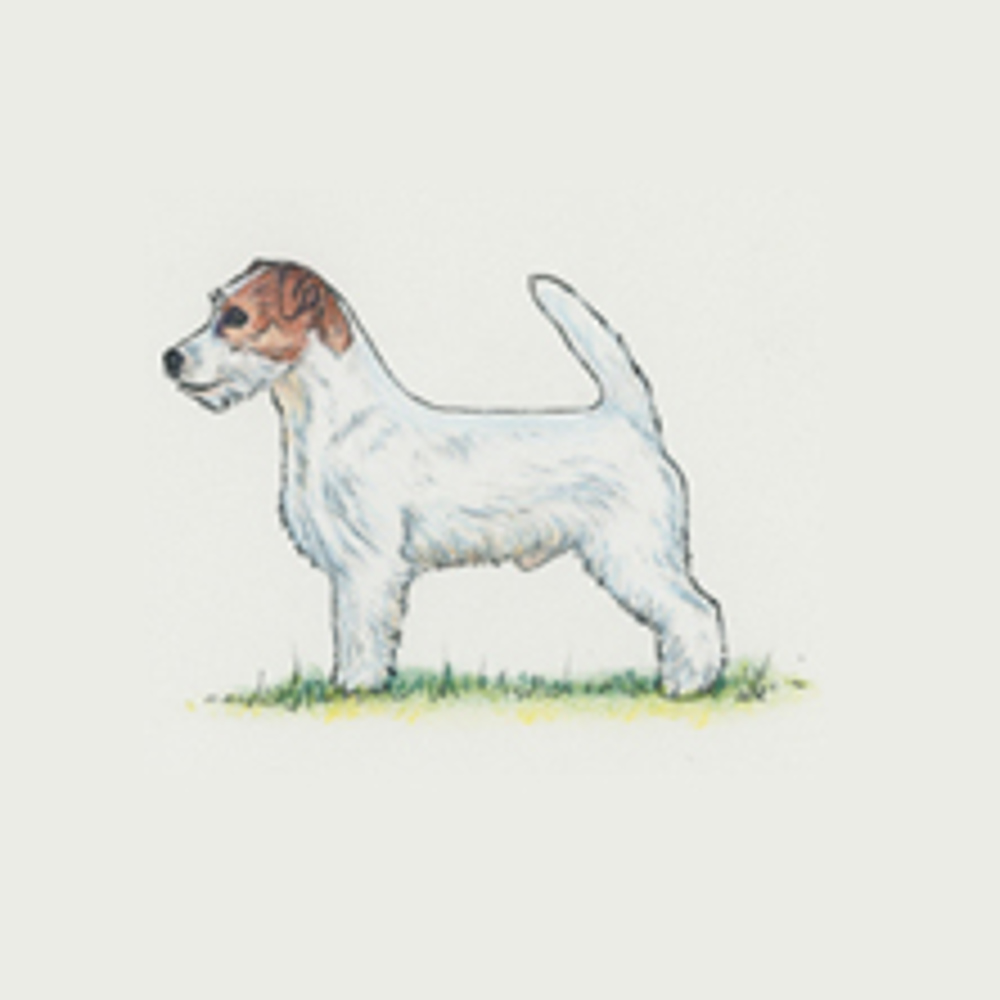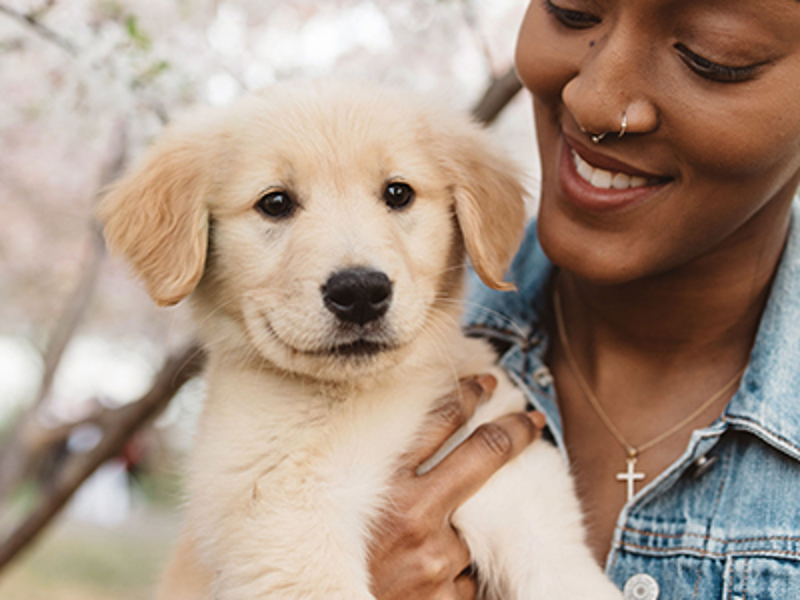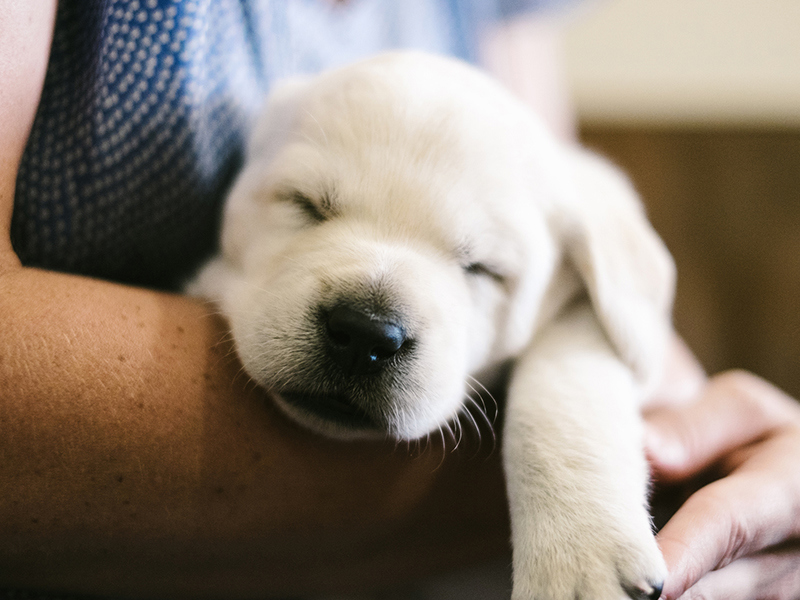
Jack Russell Terrier
Breed characteristics
- Size
- Small
- Exercise
- Up to 1 hour per day
- Size of home
- Flat/ Apartment
- Grooming
- Once a week
- Coat length
- Short
- Sheds
- Yes
- Lifespan
- Over 10 years
- Vulnerable native breed
- No
- Town or country
- Country
- Size of garden
- Small/ medium garden
About this breed
The Jack Russell Terrier was given official recognition by The Kennel Club in 2016. Although the country of development is seen as Australia, the breed has its roots in the working Terriers of the British Isles, many of which were early exports with ex-pats who emigrated to Australia and which proved their worth keeping down vermin in the new homesteads. Many small working Terriers, some of them genuine Jack Russell Terriers and others loosely carrying the title, were exported to Australia in the 1960s and 1970s and in 1972 the Jack Russell Terrier Club of Australia was founded.
It was in Australia that the breed was first seen as a dog for the show ring. Developed there, with some differences from the foundation stock, the ‘Australian’ Jack Russell has become popular world-wide at dog shows and was recognised by the Fédération Cynologique Internationale in 1991. It must be said that the type developed in Australia has some differences from the type maintained by the Jack Russell breeders in the UK, who have retained the original type: a dog similar to the Parson Russell in proportion, but in a smaller frame. However, the British standard has been drawn up as a compilation based on the British breed club standard with the Australian and FCI standards. Owners of Jack Russell terriers registered with non-Kennel Club breed clubs have been invited to register their dogs with The Kennel Club, in the hope that they will add to the gene pool and compete at The Kennel Club's shows.
Despite its development in Australia, the nomenclature pays respect to the origins of the breed as a working Terrier in England, and it is hoped that the Jack Russell of the show ring will remain essentially a working Terrier both in type and temperament. (see also Parson Russell Terrier).
Images for this breed
The Terrier breed group
Dogs originally bred and used for hunting vermin. 'Terrier' comes from the Latin word Terra, meaning earth. This hardy collection of dogs were selectively bred to be extremely brave and tough, and to pursue fox, badger, rat and otter (to name but a few) above and below ground. Dogs of terrier type have been known here since ancient times, and as early as the Middle Ages, these game breeds were portrayed by writers and painters.
Colour Watch
Category 0: Breeds with no NBS colour registration options.
Read more about Colour Watch.
Breed Standard colours
Breed standard colour means that the colour is accepted within the breed standard and is a traditional and well-known colour in this breed.
Breed standard colours in this breed include:
- White With Black Markings
- White With Black/Tan Markings
- White With Tan Markings
Other colour/s
'Other' means you consider your puppy to be a colour not currently known within the breed and one that does not appear on either the breed standard or non-breed standard list. In this instance you would be directed through our registrations process to contact a breed club and/or council to support you on identifying and correctly listing the new colour.
Non-breed-standard colours
Non-breed-standard colour means that the colour is not accepted within the breed standard and whilst some dogs within the breed may be this colour it is advised to only select a dog that fits within the breed standards for all points.
Colour is only one consideration when picking a breed or individual dog, health and temperament should always be a priority over colour.
Health
Whether you're considering buying a Jack Russell Terrier puppy or breeding from your dog, it's important to understand the health issues that may affect the breed and how they can be managed or avoided.
Pre-breeding Health Screening
Good Practice schemes and tests
We strongly recommend that breeders, at a minimum, conduct these tests before breeding, as evidence indicates these conditions are a significant concern in the breed.
- DNA test for primary lens luxation (PLL)
Best Practice schemes and tests
These tests address conditions that are still significant for the breed, though they may not be as critical as those listed under Good Practice. They might be less common or newly identified, and research is ongoing to determine their full impact.
To support the breed’s health, responsible breeders should ensure they complete all tests in both categories. Following our Best Practice guidelines means completing both the Good Practice and Best Practice tests for your breed.
- DNA test for Late onset ataxia (LOA)
- DNA test for Spinocerebellar ataxia (SCA)
- Eye testing using the BVA/KC/ISDS Eye Scheme
Find out about a particular dog's results
Please visit our Health Test Results Finder to discover the DNA or screening scheme test results for any dog on The Kennel Club's Breed or Activity Register.
You can also view the inbreeding coefficient calculation for a puppy's parents, or for a dog you're thinking of breeding from.
DNA Testing Services
Whether you're considering buying a Jack Russell Terrier puppy or breeding from your dog, it's important to understand the health issues that may affect the breed and how they can be managed or avoided.
To support your health testing journey, we provide our tailored Jack Russell Terrier Breed-Specific Package. Giving you the information you need about potential health risks, this package includes Late onset ataxia (LOA), Spinocerebellar Ataxia (SCA), Primary lens luxation (PLL) and DNA Profile (SNP - ISAG 2020).
4 essential tests valued at £235 for just £150, that screen for multiple conditions at once, saving you time and providing vital health information.
Breed Health & Conservation Plan
The Breed Health and Conservation Plans
Our breed health and conservations plans (BHCPs) use evidence and data to help us understand the health issues found in each pedigree dog breed. These plans help breeders and owners identify health and welfare problems and use information, health tests and health schemes to avoid passing on those problems to future puppies. They also support and provide breeders with tools and specialist expertise to help manage genetic diversity, understand the impacts of close breeding, and find the best ways to preserve the population of their breed.
Working together for the breed
We’ve worked with breed clubs and breed representatives to gather all available evidence to help us determine the priority concerns for the breed and decide how we can work together to manage and reduce these problems.
The full evidence base is available at the discretion of the breed clubs, however if you would like to seek access to the full report, please contact our health team.
More about health
Have any questions about health in your breed?
If you have any concerns about a particular health condition in your breed then you may wish to speak to your vet or you could contact your breed health co-ordinator.
Breed health co-ordinators are individuals working on behalf of breed clubs and councils who are advocates for the health and welfare of their chosen breed. They acts as a spokesperson on matters of health and will collaborate with The Kennel Club on any health concerns the breed may have.
To contact your breed health co-ordinator please email
Breed watch
Category 1
Currently no points of concern specific to this breed have been identified for special attention by judges, other than those covered routinely by The Kennel Club's breed standard.
Breeding restrictions
There are a number of The Kennel Club's rules and regulations that may prevent a litter from being registered, find out about our general and breed specific breeding restrictions below.
More about breeding
There are not currently any additional breed specific restrictions in place for this breed.
Looking for a puppy?
Looking for a Jack Russell Terrier? Explore our list of puppies and rescue dogs for sale near you.
More information

Need to find out more about a breed?
Use our Find a Club service where you can locate breed clubs that can offer support and advice.

Use our Find a Puppy service
The Kennel Club's Find a Puppy service provides contact details for breeders who have puppies available. Let's help you find your new best friend.

Get the best lifetime pet insurance
At Kennel Club Pet Insurance, we want you to focus on getting the best possible treatment for your dog without worrying about the cost.

